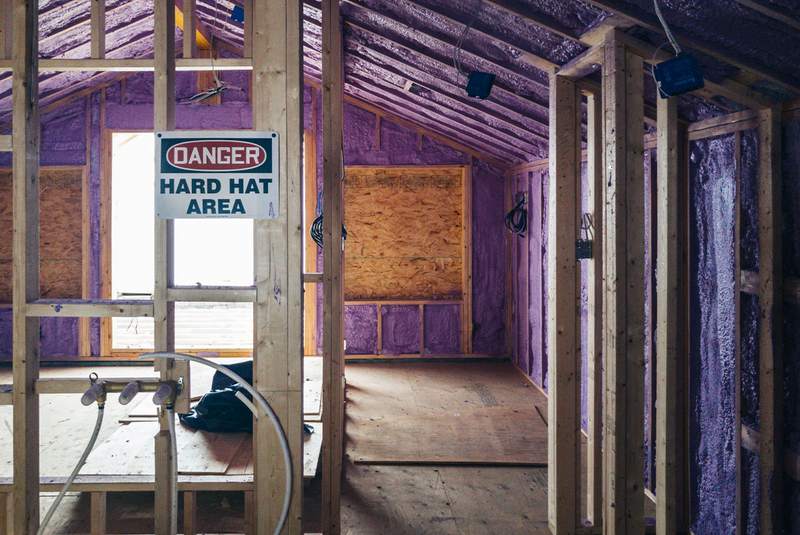Picture this: it’s another wonderful day of homeownership, and you open your mailbox only to be greeted by an unexpectedly high property tax bill. The number on the paper sends shockwaves through your budget. You’re running through the property’s assessed value in your head, which seems disproportionately steep. While property appreciation is something homeowners usually welcome, you can’t help but feel this assessment doesn’t match what your home is actually worth.
Fortunately, property tax appeals are a lifeline for homeowners grappling with inflated assessments. A property tax appeal can lower your bill if you’re facing an overwhelming rate hike from your city or county. Here’s how to navigate the process and give yourself the best chance at a successful property tax appeal.
What Is A Property Tax Appeal?
A property tax appeal is a process through which property owners can challenge the assessed value of their property for tax purposes. Local government authorities assess the value of properties to determine the amount of property tax owners are required to pay. However, property owners may believe that the assessed value is too high and does not accurately reflect the actual market value of their property. An inflated property tax assessment creates a larger tax bill, putting more stress on your budget.
To initiate a property tax appeal, a property owner must follow the set procedures of their local municipality. Appealing your property taxes usually involves submitting an appeal application, providing supporting evidence from local housing data, and attending a hearing to present your case. Then, the local authorities will review your case to determine if the appeal is justified.
Find A Mortgage Today and Lock In Your Rate!
Get matched with a lender that will work for your financial situation.
Reasons To Appeal Your Property Taxes
Appealing your property taxes has two main benefits: correcting municipal records on crucial details such as lot size and lowering your property valuation to a realistic standard to pay the appropriate amount of taxes. Here’s a breakdown of these advantages:
Your Property Details Are Incorrect
One common reason to appeal property taxes is when there are inaccuracies in the details related to your property. For example, your city’s records could include errors in the square footage, number of bedrooms or bathrooms, property features, and additions.
Incorrect property details can lead to an overestimation of the property’s value, resulting in higher property taxes. Updating these figures will help ensure a more accurate assessment. Plus, unaddressed errors could create problems when you try to sell the home.
Your Property’s Valuation Is High Compared To Similar Properties
Secondly, appealing your property taxes makes sense when nearby properties like yours have lower valuations. Reaping this benefit means first understanding how your home compares to others. Fortunately, homeowners can usually get a third-party appraiser, such as a REALTOR(r) or real estate agent, to appraise their property for free. Professionals in the field often perform this service without charge to advertise their services and get a foot in the door for the possible future sale of the home.
Bringing this new valuation to your local government can be the key to overturning the original property tax assessment. If successful, your appeal will adjust your property’s valuation and lower your property tax bill.
How Long Do You Have To File A Property Tax Appeal?
How long you have for property tax appeals varies by local and state governments. For example, homeowners in New York City have until March 15 of every year to appeal. On the other hand, homeowners in Cook County, Illinois, have 30 days to appeal after receiving a property assessment. As a result, it’s vital to understand your local deadline and ensure you submit your appeal in time. Otherwise, you’ll miss your chance for a reassessment until the following year.
How To Challenge Your Property Tax Assessment
Challenging your property tax assessment requires time and preparation to succeed. Here’s your guide for doing so with the best chance of lowering your taxes.
1. Assess Comparable Properties
First, homeowners should start the appeals process by evaluating the comparable properties (also known as comps) of similar homes in their area. Without this reference data, you won’t have the grounds for an appeal. You have several options for gathering this information, such as working with a real estate agent, asking neighbors about their assessments, or researching recent property sales on your own. Getting a professional involved is recommended to ensure the comparison is accurate.
2. Contact The Assessor’s Office
Your local government has a tax assessor responsible for performing accurate valuations. Contacting their office allows you to ask for a rationale behind the current assessment and insight into what factors could most likely change the valuation. This information can help you build your case and strengthen your appeal.
3. Appeal To The Local Independent Board
When you’re ready to file an appeal, you’ll do so with the local independent board. While the process can vary between city and state, here’s how it typically works:
- The homeowner pays the small filing fee (usually $50 or less) and files the formal appeal.
- The homeowner completes the necessary paperwork and provides supporting evidence and documentation for the appeal.
- Once documentation is submitted, the local board reviews the appeal. The decision-making time varies based on the local board and can take several months or a year.
4. Receive The Appeal Decision
Whether it takes a month or a year, you’ll eventually receive a decision. If the board approves your appeal, however, you’ll receive a decrease in the assessed value of your home, which translates to a lower property tax bill. Remember, if reducing your property taxes is the motive, homeowners should also consider various property tax exemptions to decrease property taxes.
Should You File A Property Tax Appeal?
Unfortunately, filing an appeal can work against you if the latest assessment undervalues your property. If the board comes to this conclusion, your property taxes could increase more than they already have. On the flip side, a successful appeal could also hurt the fair market value of your home, lowering your asking price if you try to sell in that same year.
Additionally, your time and efforts have a dollar value, and hours of preparation could result in a decision that lowers your bill by less than $100 a year. There are also expenses incurred by homeowners appealing property taxes, such as filing fees, accessing public information, and hiring an appraiser or attorney. As a result, homeowners must weigh the potential savings against the costs.
See What You Qualify For
Buy A Home
Discover mortgage options that fit your unique financial needs.

Refinance
Refinance your mortgage to have more money for what matters.
Tap Into Equity
Use your home’s equity and unlock cash to achieve your goals.
The Bottom Line
A property tax appeal is a crucial tool for property owners to challenge the assessed value of their properties, providing an opportunity to correct inaccuracies in property details and lower valuations compared to similar properties. The process requires careful preparation to file an appeal that lowers your tax bill. However, it’s essential to be aware of local deadlines and weigh the potential benefits against the costs and potential consequences.
Successfully appealing property taxes can result in a reduced tax bill. Still, homeowners should consider various factors, including the impact on the home’s fair market value and the associated expenses, before deciding to file an appeal. If you’re interested in lowering your taxes, brushing up on the available property tax exemptions can help you do so.
Find A Mortgage Today and Lock In Your Rate!
Get matched with a lender that will work for your financial situation.

Victoria Araj
Victoria Araj is a Staff Writer for Rocket Companies who has held roles in mortgage banking, public relations and more in her 15-plus years of experience. She has a bachelor’s degree in journalism with an emphasis in political science from Michigan State University, and a master’s degree in public administration from the University of Michigan.












